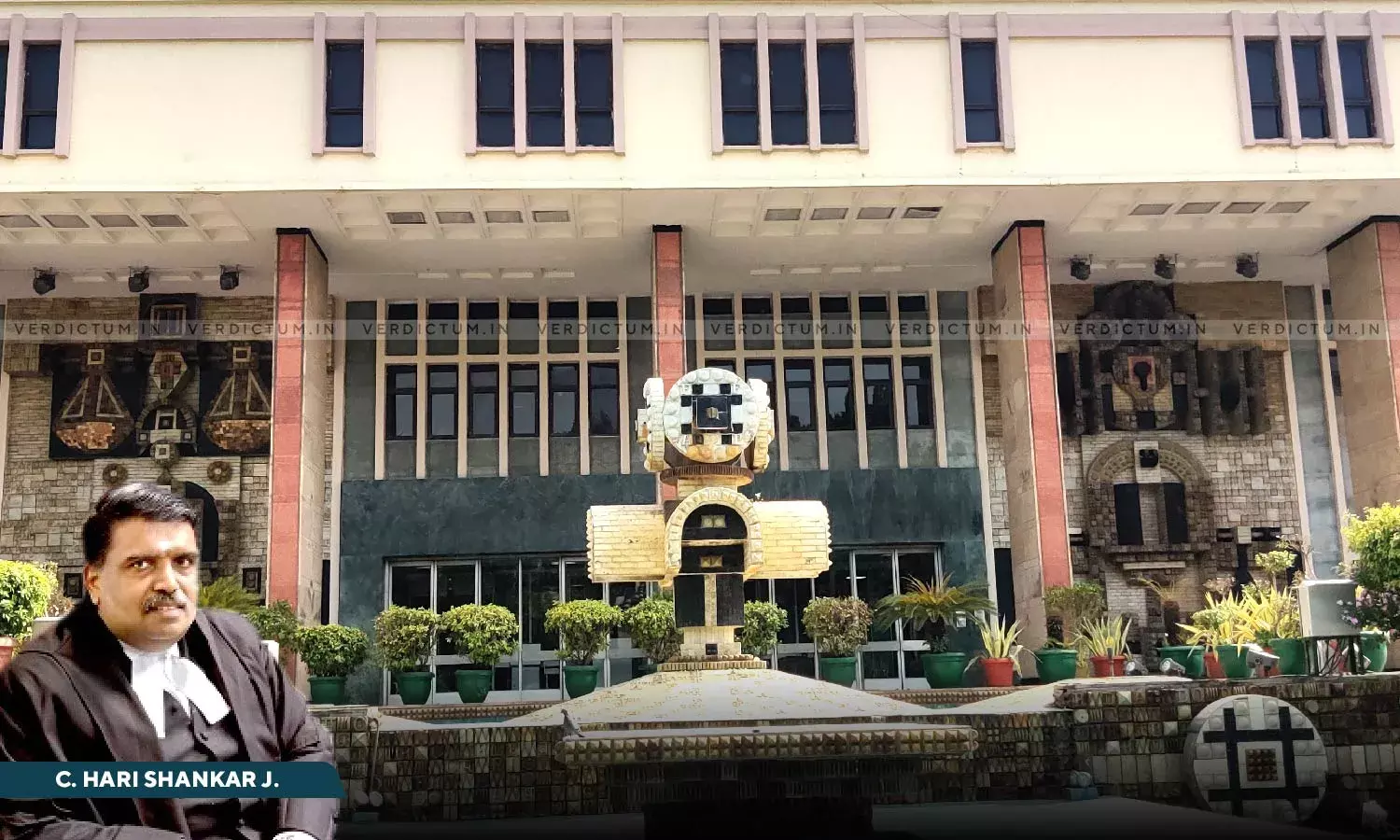Mere Fact That Some Time Elapsed Between Taking Possession Of Disputed Property & Execution Of Agreement To Sell Doesn’t Break Its Nexus: Delhi HC
The Delhi High Court said that the mere fact that some time elapsed between taking of possession of disputed property and the execution of the Agreement to Sell (ATS) does not break the nexus between the two events.
The Court said thus in an arbitration appeal preferred under Section 37(2)(a) of the Arbitration and Conciliation Act, 1996 (A&C Act).
A Single Bench of Justice C. Hari Shankar observed, “It is facile, therefore, for the appellants to seek to contend that possession of the disputed property was not taken by the appellants in part performance of the ATS. It clearly was. The mere fact that some time elapsed between the taking of possession of the disputed property by the appellants and the execution of the ATS does not break the nexus between the two events. In view of the fact– conceded by the appellants in writing and also evidenced by the Possession Letter that the appellants were handed over possession of the disputed property in terms of the ATS, the ATS clearly attracts Section 53A of the TPA and, in its wake, Article 23A of Schedule I-A to the Stamp Act as applicable to Delhi.”
Advocate Anshuman Sahni appeared for the appellants while Advocate Pranshu Paul appeared for the respondents.
In this case, the second respondent owned a property and entered into a Collaboration Agreement with the first respondent for demolition and reconstruction of the disputed property. The reconstructed portion was to have basement, ground floor, first floor, second floor, and third floor with terrace. The said agreement gave the first respondent the rights to sell the second floor of the disputed property. Thereafter, the first respondent entered into an ATS with the appellants whereunder the reconstructed second floor of the disputed property was to be sold to them. In terms of ATS, the appellants paid the amount of sale consideration within the time and consequently, possession of the property was given to them.
However, disputes arose between the appellants and first respondent in context of ATS. During the arbitral proceedings, the second respondent filed an application before the Arbitrator for impounding the ATS as having been insufficiently stamped. The Arbitrator accepted his plea and held that ATS was not sufficiently stamped under Article 23A of Schedule I-A of the Indian Stamp Act, 1899 (ISA) as applicable to Delhi, read with Section 53A of the Transfer of Property Act, 1882 (TPA). Being aggrieved by this, the appellants as the claimants, approached the High Court.
The High Court in the above regard enunciated, “Applying the above principles, every ingredient of Section 53A stands satisfied in the present case. There was a pre-existing ATS. Possession of the disputed property was handed over to the petitioner pursuant to, and in terms of, the ATS. The assumption of possession of the disputed property by the petitioner was, in fact, itself evidence of the existence of the ATS. The ATS envisaged grant of possession of the disputed property to the petitioner. As such, the anti-over the possession of the disputed property to the petitioner was by way of part performance of the ATS. The Possession Letter, under which the appellants obtained possession of the disputed property, specifically states so.”
The Court added that the execution of the ATS, making of payment by the petitioner thereunder, and grant of possession of the disputed property to the petitioner, are inalienable events, which cannot be divorced from one another and that they are part of one transaction. It said that the ATS, therefore, is squarely covered by Section 53A.
“The decision in Patel Natwarlal Rupji merely observes that Section 53A is intended to be used as a shield, and not as a sword. I have already noted that, while this principle is unexceptionable, it has no relevance to the issue of whether the ATS was duly stamped. In fact, para 5 of the report in Patel Natwarlal Rupji again sets out the ingredients of Section 53A of the TPA, all of which are satisfied in the present case”, it remarked.
The Court observed that the impugned order reflects an appreciation and interpretation, by the Arbitrator, of Article 23A of Schedule I-A to the Act, as applicable to Delhi, vis-à-vis Section 53A of the TPA.
“Given the overarching principle of reticence by courts, in interfering with the view is taken by arbitral tribunals, no case for interference with the view expressed by the learned Arbitrator in the impugned order, can be said to exist. … I entirely concur with the view expressed by the learned Arbitrator. The appreciation, by her, of Section 53A of the TPA, is correct and in sync with the existing law on the subject”, it concluded.
Accordingly, the High Court dismissed the appeal.
Cause Title- Sharad Bhansali & Anr. v. Mukesh Aggarwal & Anr. (Neutral Citation: 2024:DHC:5429)
Appearance:
Appellants: Advocate Anshuman Sahni
Respondents: Advocates Pranshu Paul, Pulkit Gupta, Karan Jain, and Himanshu Gupta.




